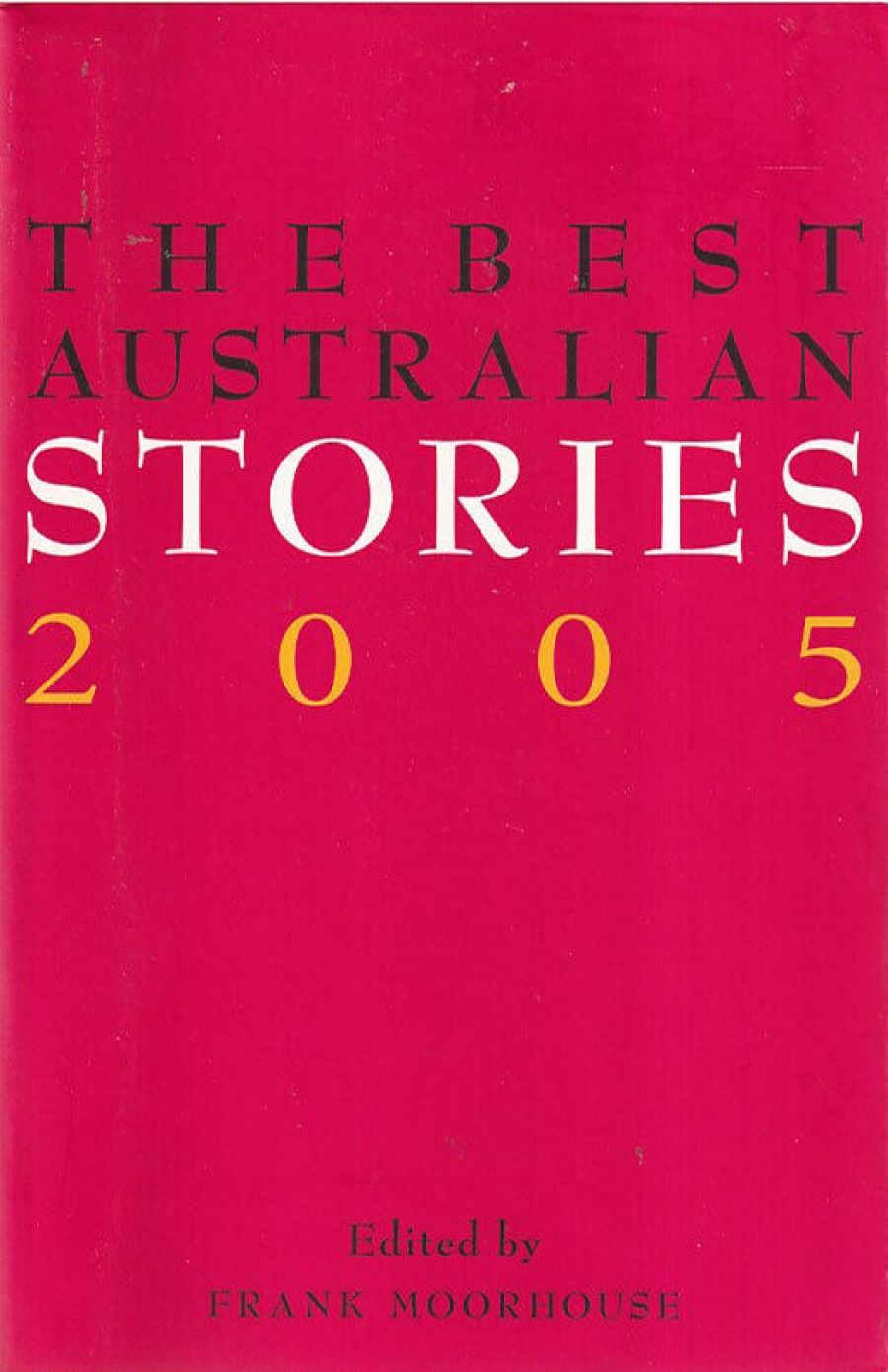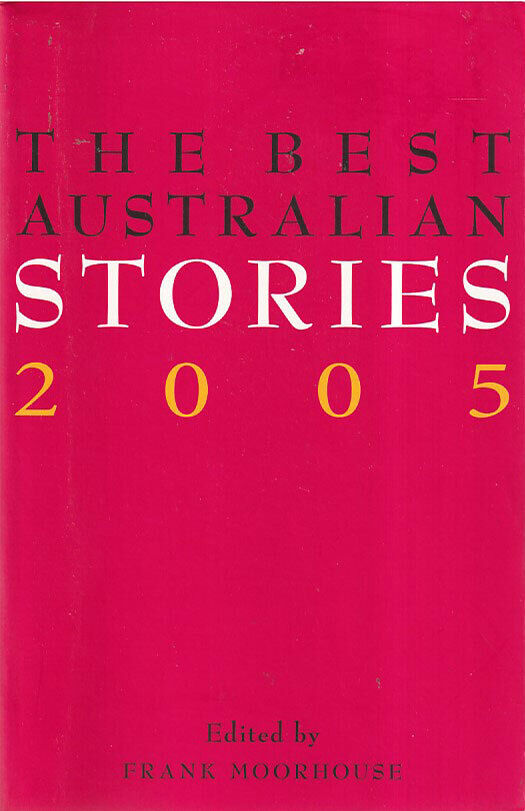
- Free Article: No
- Contents Category: Fiction
- Review Article: Yes
- Article Title: Unknown quantities
- Online Only: No
- Custom Highlight Text:
When Frank Moorhouse took over the editorship of The Best Australian Stories in 2004, he promptly announced that he would be accepting submissions from anyone, regardless of whether they had a publishing history or not. He received and read, by his own estimate, about 1000 stories and gave six unknown writers the chance to be published for the first time. To his credit, he also took it upon himself not only to talk up the edition, but to make the case for the importance of the short story as a distinct literary form – one that is often underappreciated. There was no doubting Moorhouse’s enthusiasm for his new role. Having read the work of around 600 writers, he could claim with some authority that short fiction was thriving, despite limited opportunities for publication. Indeed, the 2004 edition, he boasted, ‘set a new benchmark in the standard of the short story’. Now steady on, Frank.
- Book 1 Title: The Best Australian Stories 2005
- Book 1 Biblio: Black Inc., $24.95 pb, 235 pp
- Book 1 Cover Small (400 x 600):

- Book 1 Cover (800 x 1200):

Moorhouse’s generous offer to read absolutely anything anyone cared to send him was withdrawn for his second turn as editor. Time was becoming a factor, apparently. He now believes it is ‘beyond a single editor to read all the stories that are out there’ – which is less surprising than the fact that he ever thought it possible. Nevertheless, an admirably inclusive editorial policy remains in place. Moorhouse claims he tried only to select work of the highest quality, and did not set out to promote new talent ahead of established authors. In practice, however, this is what he has done. Apart from a few familiar names, such as Peter Goldsworthy, Janette Turner Hospital and Gillian Mears, the 2005 edition of Best Stories, like its predecessor, is of particular interest because it contains the work of many writers who are relatively unknown quantities. And some of them are very good indeed.
The selection process, Moorhouse argues, is ‘not simply subjective’, but is informed by his years of experience as a reader and writer. Still languishing in the realm of the subjective, I confess that I found a few of his choices to be underwhelming and a couple genuinely irritating. But to read the work of Patrick Cullen – one of four writers published here for the first time – is to understand what Moorhouse is talking about. Cullen is the kind of writer editors must dream about discovering. The style and mood of his stories reveal him to be very obviously in thrall to the Raymond Carver school of American realism. The understated tales of fraught domesticity, the polished sentences, the sly symbolism, the flatness of tone belying an emotional intensity – these all sing directly from the Carver songbook. But if Cullen has not quite transcended his influences, the quality of his writing is undeniable. The decision to include a suite of three of his stories, when every other contributor has only been granted one, is absolutely justified.
The kind of crisp Chekhovian realism that Cullen writes has been the dominant short story tradition for a century, so it is not surprising that some other inclusions adopt a similar approach. In fact, most of the stories provide an intimate perspective on human relationships. A clear majority are concerned, in one way or another, with the issues of love and sex. Several are based around small moments of interpersonal friction over something trivial: a set of missing keys, for example; or who gets to hold some passports. This, in turn, leads to a quiet epiphany that reveals a deeper well of sentiment.
This is an effective technique when it is stylishly done, as it is in the stories from which I took the above details of the keys and the passports, by Charlotte Wood and Janey Runci, respectively. But it is also a very familiar technique. As a result, among the stories in realist mode, I tended to be more attracted to those that had a certain grit or bluntness about them. Amra Pajalic’s ‘Fuck Me Eyes’, for example, is a briskly narrated tale of a twelve-year-old girl’s troublesome relationship with her half-sister. Tara June Winch’s very brief ‘Cloud Busting’ is a touching story told in a lively vernacular style. While Alejandra Martinez’s thoughtful ‘If You Don’t Like It Leave’ eschews the politeness of imagery to address social and cultural questions directly, it inadvertently draws attention to the lack of interest most of these stories have in the small matters of race, class, religion and politics.
Those contributions that are more adventurous in a formal sense make up a substantial minority. These stories contain some of the most interesting and original writing in the anthology, but are less consistent than those that do not stray from the path of realism. Paul Mitchell’s ‘The Favourite’ did stand out, however, thanks to its droll appropriation of Freudian imagery and the brash manner in which its narrative slips back and forth between different levels of reality and different points of view.
The Best Australian Stories 2005 is, overall, a strong and diverse collection. It should be essential reading for anyone interested in contemporary Australian fiction. Moorhouse has good reason to believe in the value of the short story. Indeed, he is one of several eminent Australian writers – including Peter Goldsworthy, Robert Drewe and Peter Carey – whose first published book was a collection of stories. If these writers were beginning their careers today, they would be unlikely to receive the same opportunity – at least, not from any major publisher. But if there are any publishers out there who give a damn about quality or who have somehow retained the ability to think beyond next Christmas, then perhaps they might look to the future and consider publishing a book of short stories by Patrick Cullen.


Comments powered by CComment